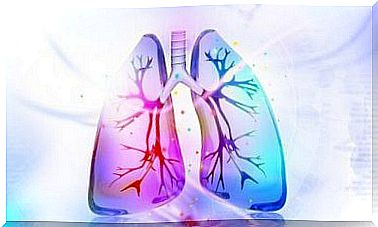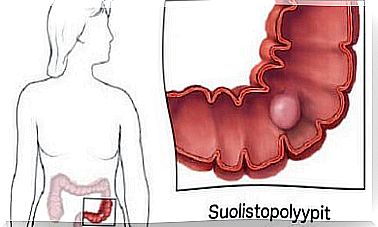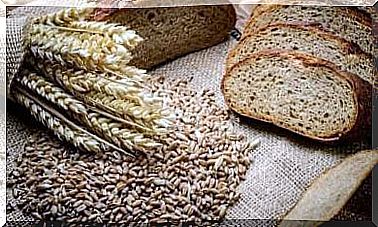Bad Habits That Can Damage The Gut
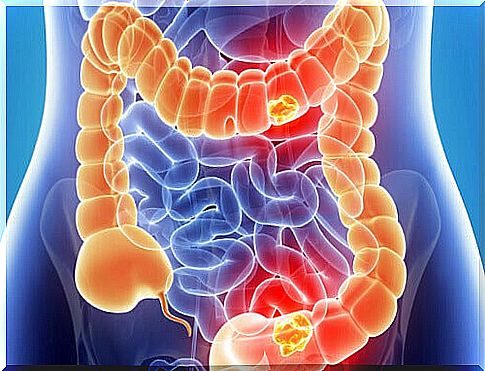
Intestinal function is important for the whole body. Poor lifestyle can damage the gut. Intestinal problems are common and many of us suffer from inflammation, flatulence and pressure in the abdominal area. Many intestinal problems are related to anxiety and stress, but most often the cause of the symptom is found in the diet. One of the most serious intestinal problems is irritable bowel syndrome, which can be alleviated to some extent by dietary changes. What habits negatively affect bowel function and how can the symptom be prevented?
1. A stressful rhythm of life can damage the gut

Hurry cannot always be avoided, but try to arrange a relaxing time for yourself every day. The worries, congestion and stress of a busy work and home life directly affect the well-being of the stomach and intestines. Balancing work and family life, especially with young children, is demanding, and there seems to be little time left.
According to many theories, the gut is the other brain in the body where the neurotransmitters in the brain are synthesized – which is why it is important to take care of the health and balance of the gut. The stress hormone cortisol causes problems with intestinal function, as in stressful situations the hormone is released into the body by constant feeding. Cortisol is a natural substance that is excreted in threatening situations, it keeps a person alert and ready for action. When the stress situation is not triggered, cortisol accumulates in the body and in the long run the metabolism slows down and the intestines begin to show symptoms, even new food allergies may develop.
So keep the following in mind:
- Stress and hurry change the functioning of the autonomic nervous system. The autonomic nervous system regulates bowel movements, and stress can either accelerate or slow normal bowel function.
- Changes the function of the endocrine system. The endocrine system includes e.g. pituitary and thyroid. Stress increases the production of many hormones, such as cortisol and adrenaline, which in large quantities make bowel function difficult.
- Excessive eating. Many eat more stressed than normal. The need to relieve a stressful state of being can lead to eating and snacking, as eating produces a sense of well-being. Food accumulates more in the gut than normal, and the gut is unable to process it all in the normal way. This leads to problems with food absorption.
Remember that your lifestyle and emotions directly affect your body, especially your internal organs. Arrange time for yourself to relax and look for ways to live a more relaxed life. Don’t strain in vain and put yourself first, arrange time to relax: even ten minutes a day can work wonders. Take a jog, take a long, hot shower, or watch a moment of telly in your own peace, do exactly what you feel will relax you. Too much stress and urgency can lead to big problems in the long run.
2. Poor diet and eating habits can damage the gut
Avoid fried and highly processed foods, junk food and salty foods
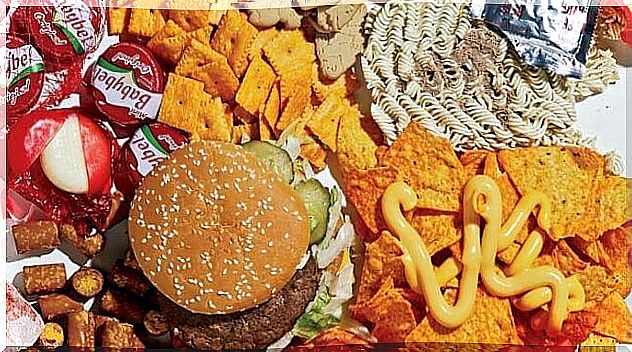
Burgers, french fries, fried chicken, pizza and other delicacies. These delicacies are always made between everyone’s mind, but eating too much junk food can lead to problems.
Fast junk food is usually resorted to in a hurry or out of sheer habit. However, many know from personal experience what kind of stomach pain sometimes happens from junk food, especially if you eat it for many days in a row. Junk food has very little digestible fiber, but even more fat and salt. If you eat too much of these foods, they stimulate the gut and can lead to diarrhea or constipation.
Tip: use an oven for cooking instead of frying in a pan, this way you will have used less oil. Vegetables are easily and healthily prepared by steaming or cooking. The healthiest oil option, of course, is olive oil, so I prefer it for cooking.
Avoid red meat

Why should red meat be avoided? A large amount of red meat is hard to digest, high in fat, and you don’t always know where the meat comes from. Many livestock are genetically engineered to grow faster and live in poor, cramped conditions. They are often fed an antibiotic with the feed to prevent inflammation. Hormones are also secreted into the meat of stressed animals. All of these ingredients are passed through animal meat to the human body.
Tip: If you’re a committed meat lover, we recommend lighter options like chicken or turkey. When buying meat, always read the origin of the meat in the package leaflet and favor organic and locally produced meat. Avoid skewing the meat in a pan and bake it in the oven or grill. Even in restaurants today, one can boldly inquire about the origin of meat, and often good restaurants source their meat from reliable farms.
Avoid dairy products

Dairy products are considered to be one of the most common causes of intestinal upset. Many dairy products melt slowly and are low in fiber. Milk lactose can cause a variety of problems in humans, and people with irritable bowel syndrome, for example, should omit dairy products altogether. Lactose can cause diarrhea and constipation. Avoid dairy products as much as possible.
Tip: Dairy products can be easily replaced with herbal products and goat milk products. Try rice milk, oat milk, coconut milk and almond milk, for example. There are plenty of options in supermarkets and health food stores, and you can make them yourself. So leave cow’s milk less and try something else.
3. Medication can damage the gut

According to many studies, several intestinal problems are caused by various medications, especially antibiotics. Medications should not be clicked in vain and especially multiple consecutive courses of antibiotics can damage the gut. Antibiotics are unable to distinguish between good and bad bacteria, and destroy any microbes that get in their way.
The normal human intestinal microbiota comprises up to 7,000 different bacterial strains. Intestinal microbes have many important functions for health: for example, they are involved in the breakdown and synthesis of many nutrients and affect the body’s immune system. Microbes also have a direct effect on weight management as they are involved in the regulation of body fat metabolism. Antibiotics destroy the intestinal bacterial flora and can lead to constipation, diarrhea, flatulence and abdominal pain.
However, antibiotics are not the only medication that affects intestinal function. For example, medications for constipation and diarrhea when used for a long time interfere with normal bowel function. In mild cases, you may want to try natural remedies first , such as flaxseed to treat constipation or mint tea to relieve diarrhea.
If the ailment persists for a long time or is severe, you should consult a doctor. Feel free to ask your doctor about the effect of different medications on your gut and together try to find a medication that doesn’t cause too many problems in your body.



